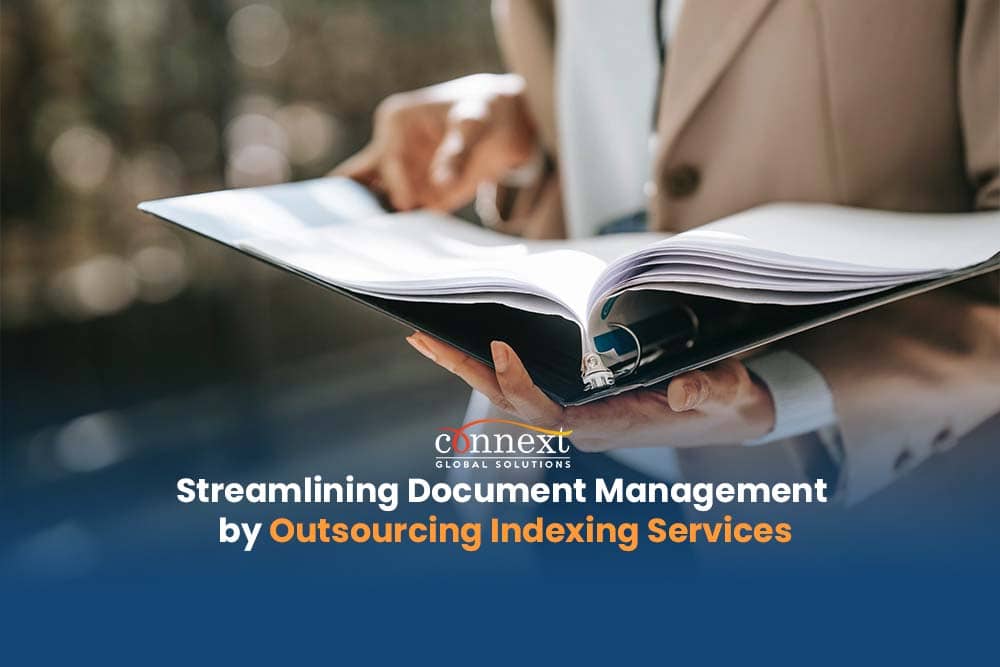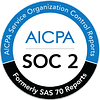Streamlining Document Management by Outsourcing Indexing Services
The article discusses how businesses can streamline document management by outsourcing Indexing Services.

Organizations today are constantly seeking ways to streamline operations and maximize productivity of business operations such as the document management processes, which take most of the time and resources of businesses.
What is Indexing?
A great way to start making documents more searchable and accessible is to perform document indexing, which is categorizing information into an organized structure or system where users are able to locate specific information without having to search through large volumes of data or documents manually.
The process of indexing, however, is tedious and high in volume. Instead of manually sorting or categorizing documents, one effective strategy is outsourcing non-core functions to specialized service providers. This process improves productivity and reduces the time and effort required when accessing documents.
Outsourcing Indexing Services
By outsourcing document indexing services, businesses have access to expertise of professionals who can efficiently organize and categorize information and eliminate the time-consuming manual search process.
Efficient document retrieval and access management are essential for smooth business operations. By outsourcing these functions, you enable your team access to the right documents, boosting productivity and enabling efficient collaboration across departments.
Outsourcing indexing services plays an important role in document indexing for businesses as it helps users quickly identify and retrieve relevant documents based on specific criteria. Outsourced indexed services include locating and retrieving specific set of data or documents.
Sometimes called document indexing, this process involves adding descriptive or informative context or annotations to a document such as the brief description of the document’s content, the creation of metadata or tags, relevant keywords, or references, to improve the accessibility, searchability, and management of processed documents within a document management system.
These annotations can also include information such as document summaries, key points, relevant dates, author names, or specific keywords that highlight the document’s content or significance.
Benefits of Outsourcing Indexing Services
Through outsourcing indexing services businesses are able to provide additional context and information about the document, enabling users to locate and retrieve specific files quickly, at a reduced cost.
By adding annotations, outsourced indexing staff can make documents more searchable, enabling users to locate information efficiently and effectively. Outsourcing index services can also enhance collaboration by providing shared understanding and context among team members who are accessing and working with the indexed documents.
Outsourcing indexing services ensures compliance to industry standards. Outsourcing experts in the field can apply algorithms and natural language processing techniques to extract relevant information, such as dates, names, keywords, and document types. By outsourcing this function, you can improve the document management process.
Also, outsourced staff review the indexed information, validate the metadata, and perform comprehensive checks to ensure data accuracy and reliability. Outsourcing indexing lets you save internal resources and gain confidence in the quality of your indexed documents. Documents that can be indexed are:
- Text Documents including files in formats such as Microsoft Word (.doc, .docx), PDF (.pdf), plain text (.txt), and rich text (.rtf). These documents often contain various types of content, including reports, memos, articles, contracts, and letters.
- Spreadsheets created in applications like Microsoft Excel (.xls, .xlsx) or CSV (Comma-Separated Values) formats can be indexed. These documents typically contain tabular data, financial information, or project tracking data.
- Presentations done in software such as Microsoft PowerPoint (.ppt, .pptx) or Google Slides, can be indexed. These files often contain slides with text, images, and multimedia elements used for business presentations, training materials, or educational purposes.
- Emails and email attachments can be indexed to facilitate email management and retrieval. This includes both individual emails and email threads or conversations. Indexing email content allows for efficient searching and organization of important communication.
- Image files, such as JPEG (.jpg) or PNG (.png), can also be indexed. While the indexing process for images typically focuses on associated metadata (e.g., file name, resolution, date created), advanced techniques like optical character recognition (OCR) can extract text from images, making them searchable.
- Audio and Video Files: Audio files (e.g., MP3, WAV) and video files (e.g., MP4, AVI) can be indexed, allowing for efficient searching and management of multimedia content. Indexing can involve extracting metadata such as file duration, title, or associated tags.
- Web Pages and HTML Documents: Web pages and HTML files can be indexed to enable efficient searching and archiving of web-based content. This is particularly useful for web-based research, content management, or website archiving purposes.
- Database Records: In some cases, indexing may involve extracting and organizing data from structured databases. This allows for efficient searching and retrieval of specific information within a database system.
Outsourced staff have wide experience in indexing documents for specific industries like healthcare, finance and accounting, and human resource management, indexing documents such as medical records, Accounts Payable records, indexing documents for the accounts receivable department of mortgage, insurance, and medical providers, and HR records.
If you decide to outsource indexing services, look for providers with a proven track record in document management processing and indexing services. Consider their experience in your specific industry or niche, as this can bring valuable insights and understanding of your unique requirements. Ensure they have the capability to handle fluctuations in workload, urgent requests, and volume of your document management needs.
Aside from track record and scalability, you should also look for providers with technological capabilities like cutting-edge tools, software, and infrastructure. Look for providers that apply automation, artificial intelligence (AI), optical character recognition (OCR), and other advanced technologies. It is important that they comply with relevant industry standards and regulations, data privacy policies, encryption protocols to ensure the confidentiality and integrity of your documents.
In summary, outsourcing document indexing services offers numerous advantages. It saves time and resources by eliminating manual searches, enhances collaboration through effective annotation and context, ensures compliance with industry standards, improves the document management process, and caters to specific industry needs. By leveraging the expertise of outsourced professionals, businesses can streamline their operations, boost productivity, and focus on core activities that drive their success.
Learn more about outsourcing indexing and other back office functions.
Connext Global Solutions helps companies build custom, dedicated support teams in the Philippines. Learn more about Connext Global Solutions.
Follow us on:
Facebook: Connext
LinkedIn: Connext
Instagram: @connextglobalsolutions_
Twitter: @ConnextPh







